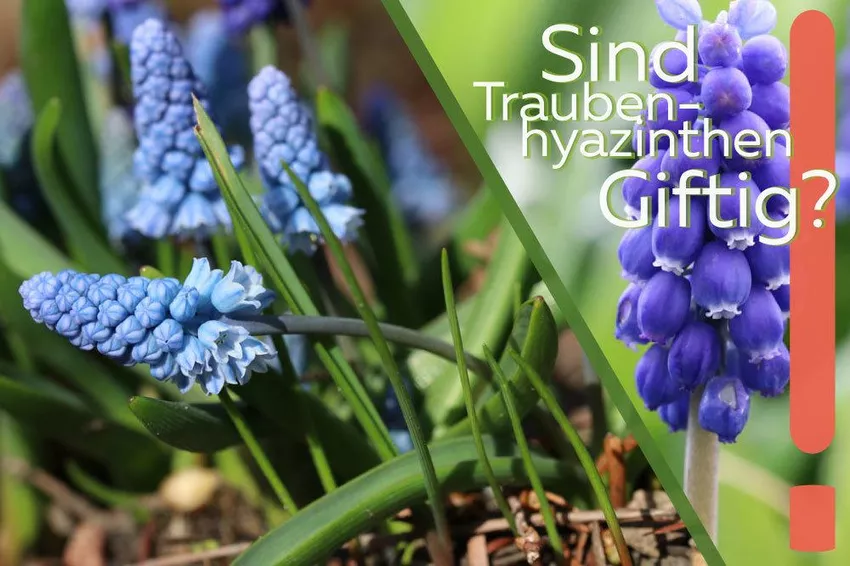
The grape hyacinth is a beautiful spring plant that originally comes from the Mediterranean region. Since it is non-toxic, it is also an option in gardens with children and pets.
grape hyacinths
consumption
Can the grape hyacinth be eaten?
Although the plant is not poisonous, grape hyacinths should not be consumed in large quantities. Aside from the palatability, which leaves something to be desired, consuming large amounts can cause gastrointestinal distress.
What to do if muscari has been eaten?
If small amounts of muscari have been consumed by children, adults or pets, there are usually no symptoms to be observed. Larger amounts can cause gastrointestinal problems.
 Grape hyacinths, muscari
Grape hyacinths, muscari
In this case, the following measures will help:
- Refrain from induced vomiting
- gift of water
- Giving medicinal charcoal
- treatment of symptoms
You only need to see a doctor if your symptoms don't go away within a day or two.
danger to cats
Grape hyacinths in cats
Cats are naturally curious and the beautiful plants in the garden also appeal to velvet paws. But how dangerous is it when Mietz suddenly attacks the beauties out of appetite?
With grape hyacinths, the risk is low because the plant is non-toxic throughout. However, cats can also gastrointestinal problem triggered when the animal eats too much of the plant. However, since the plant is not tasty, hardly any cat will attack and consume the entire stock.
 cat
cat
A minimal consumption or a small, curious attempt to nibble on a few parts of the plant will have no consequences for the cat. Should it still be closed Gastrointestinal complaints come, these are almost always of a light nature.